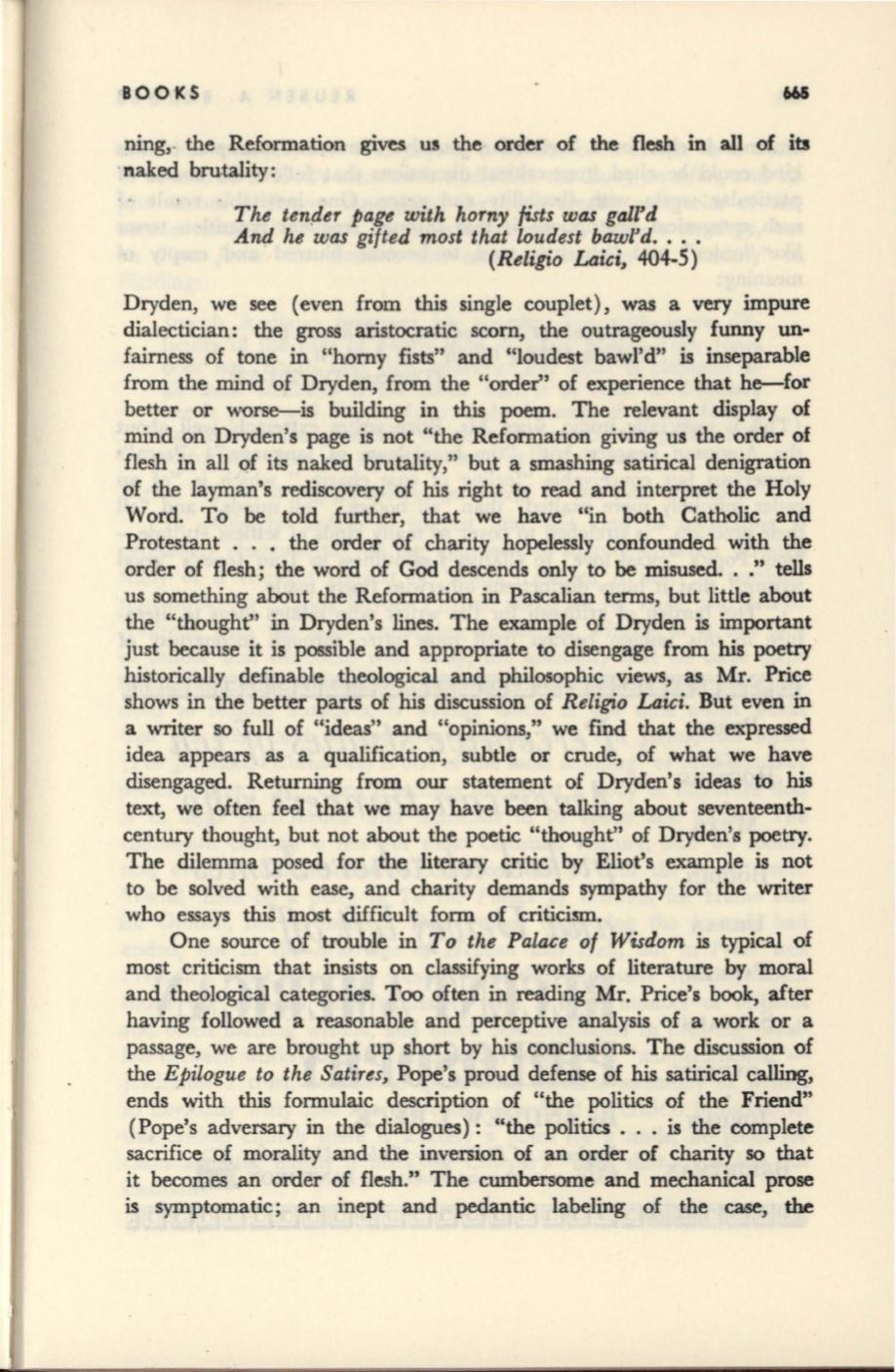

BOOKS
ning,. the Reformation gives us the order of the flesh in
all
of
its
"naked brutality:
The ten{1er page with hO'rny fists was gall'd
And he was gifted mO'st that wudest bawl'd.
•..
(ReligiO' Laici, 404-5)
Dryden, we see (even from this single couplet), was a very impure
dialectician: the gross aristocratic scorn, the outrageously funny un–
fairness of tone in "horny fists" and "loudest bawl'd"
is
inseparable
from the mind of Dryden, from the "order" of experience that he-for
better or worse-is building in
this
poem. The relevant display of
mind on Dryden's page is not "the Reformation giving us the order of
flesh in all of its naked brutality," but a smashing satirical denigration
of the layman's rediscovery of his right
to
read and interpret the Holy
Word. To be told further, that we have "in both Catholic and
Protestant . . . the order of charity hopelessly confounded with the
order of flesh; the word of God descends only to be misused. . ." tells
us something about the Reformation in Pascalian terms, but little about
the "thought" in Dryden's lines. The example of Dryden
is
important
just because
it
is possible and appropriate to disengage from his poetry
historically definable theological and philosophic views, as Mr. Price
shows in the better parts of his discussion of
ReligiO' Laici.
But even in
a writer so full of "ideas" and "opinions," we find that the expressed
idea appears as a qualification, subtle or crude, of what we have
disengaged. Returning from our statement of Dryden's ideas to his
text, we often feel that we may have been talking about seventeenth–
century thought, but not about the poetic "thought" of Dryden's poetry.
The dilemma posed for the literary critic by Eliot's example
is
not
to be solved with ease, and charity demands sympathy for the writer
who essays this most difficult form of criticism.
One source of trouble in
TO' the Palace O'f WisdO'm
is typical of
most criticism that insists on classifying works of literature by moral
and theological categories. Too often in reading Mr. Price's book, after
having followed a reasonable and perceptive analysis of a work or a
passage, we are brought up short by his conclusions. The discussion of
the
Epilogue to' the Satires,
Pope's proud defense of
his
satirical calling,
ends with this formulaic description of "the politics of the Friend"
(Pope's adversary in the dialogues): "the politics ...
is
the complete
sacrifice of morality and the inversion of an order of charity so that
it becomes an order of flesh." The cumbersome and mechanical prose
is symptomatic; an inept and pedantic labeling of the case,
the









